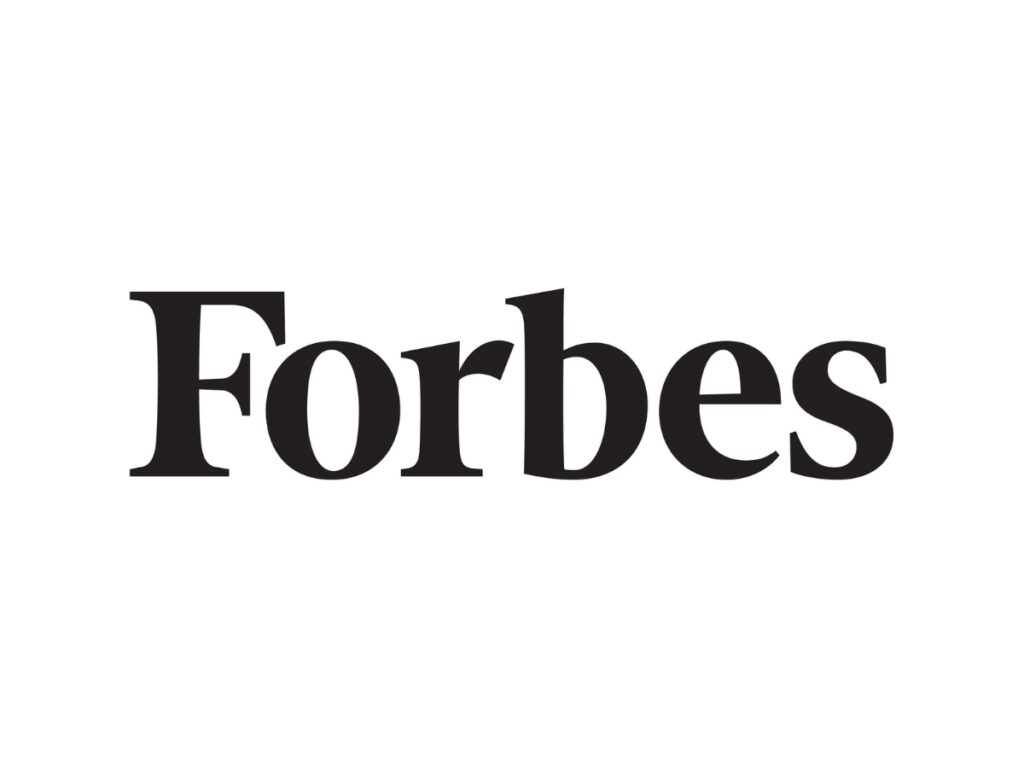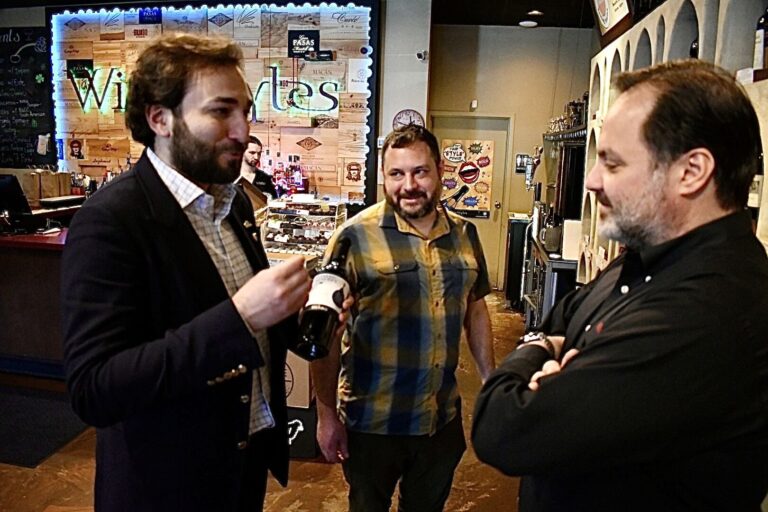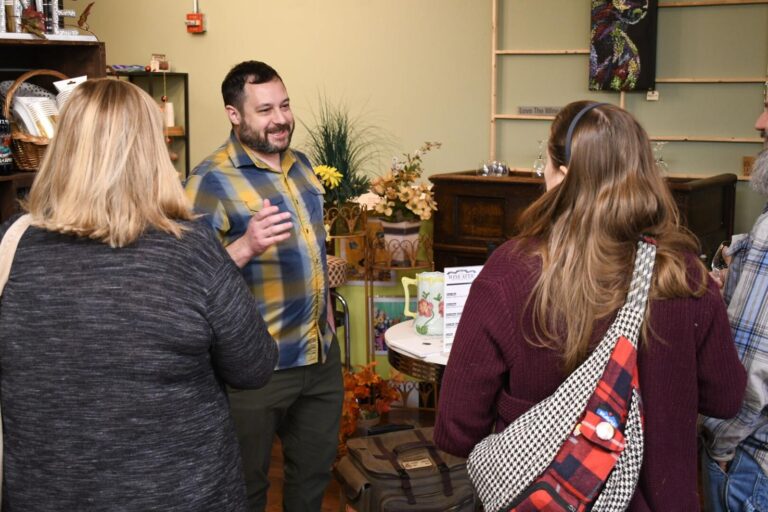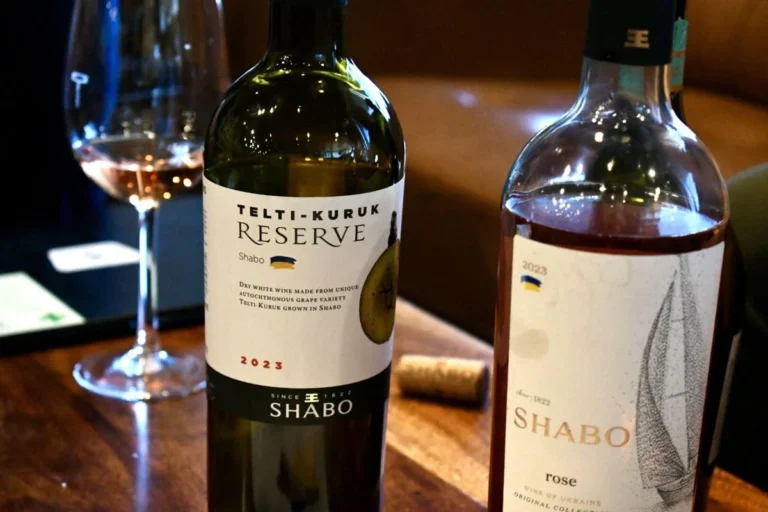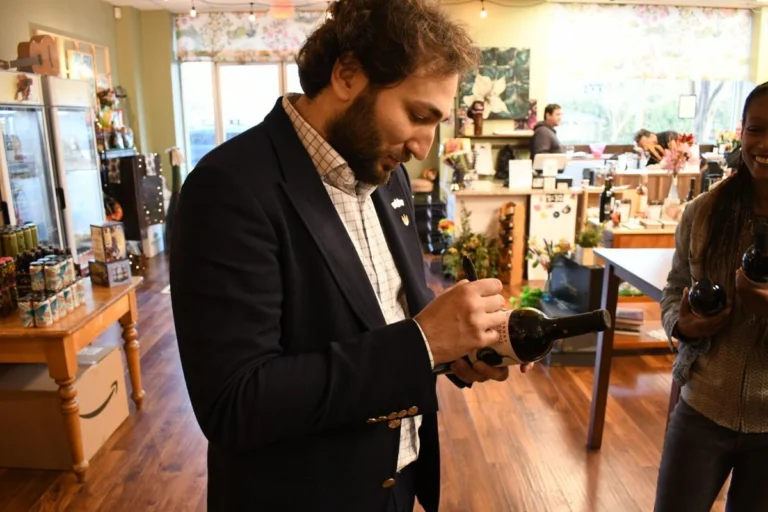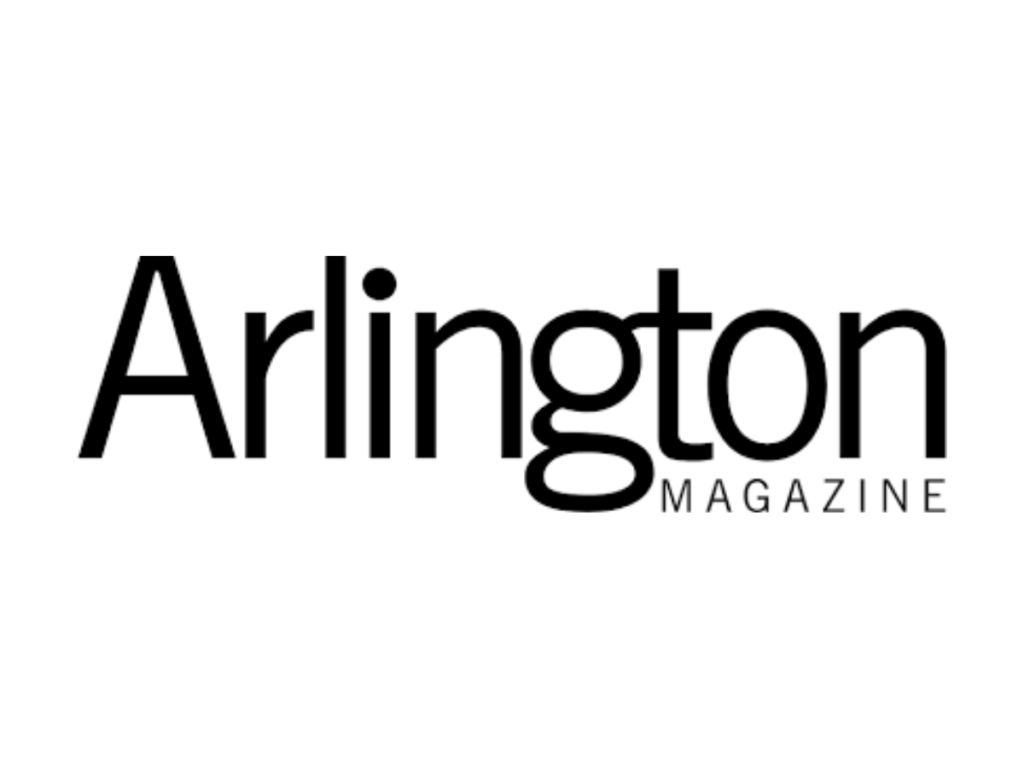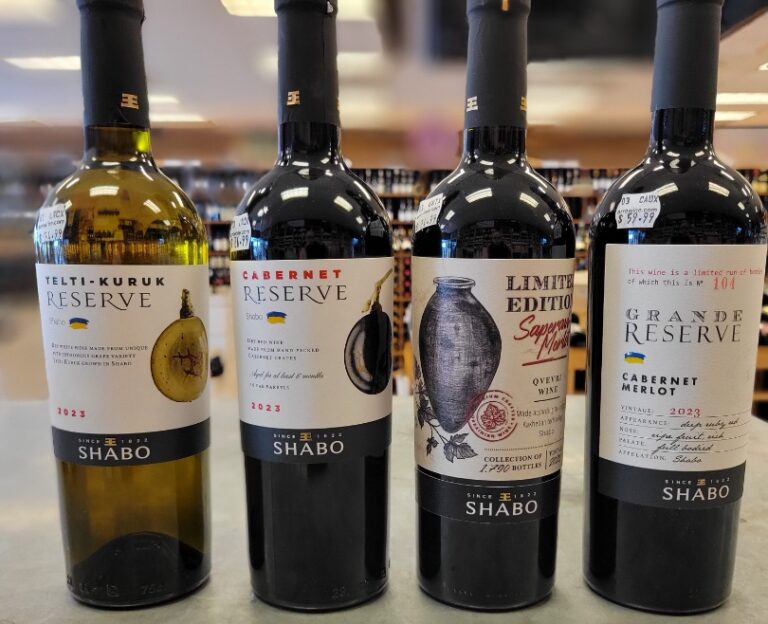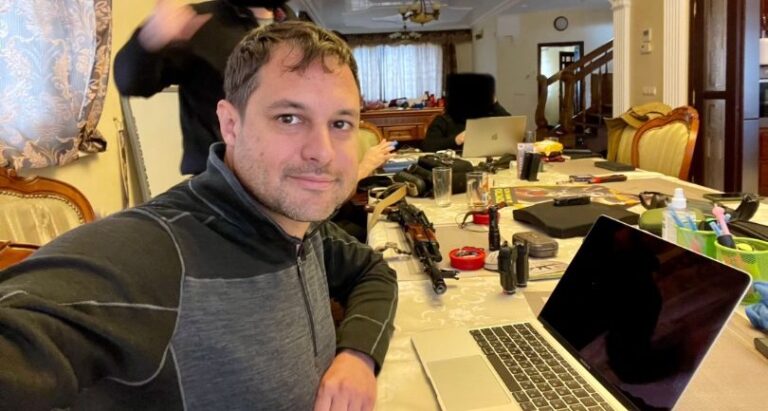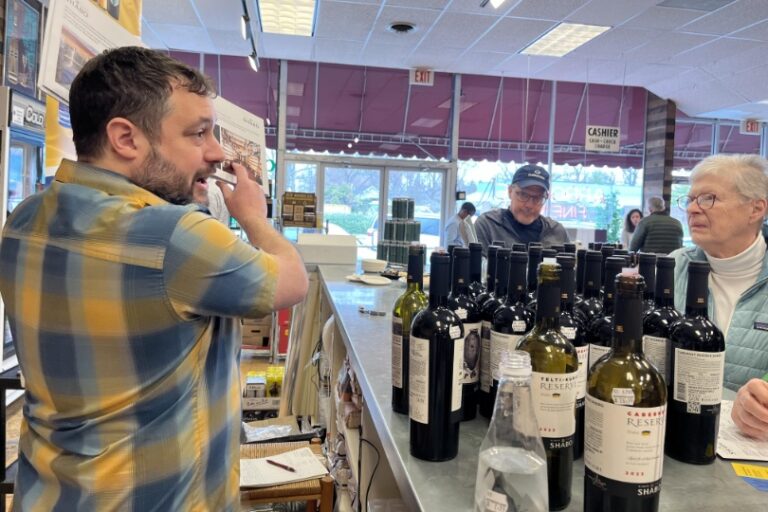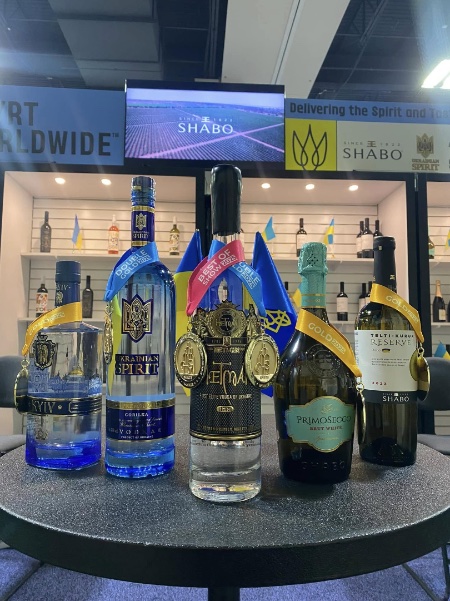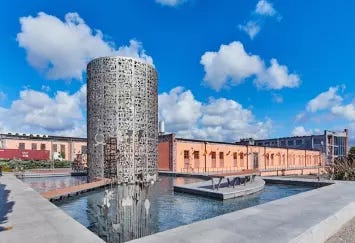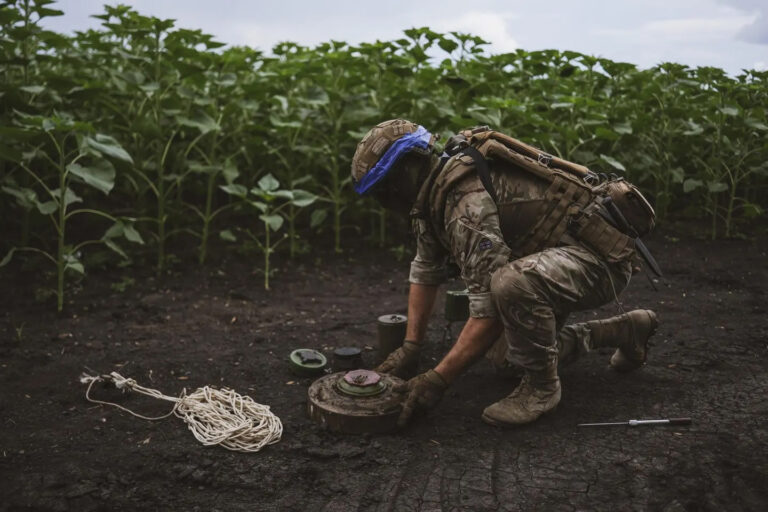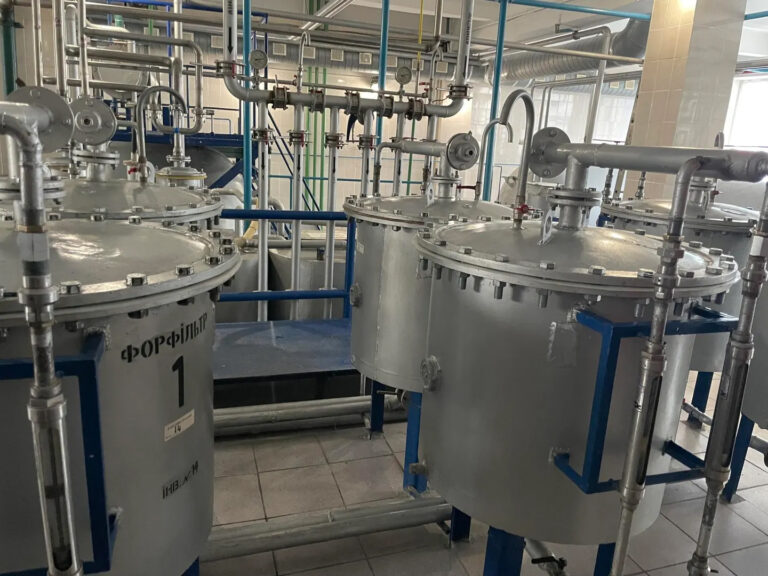Ukraine Wine Producer Winning Top Wine Competitions Helps Those In Need

Editor's Pick
Ukraine Wine Producer Winning Top Wine Competitions Helps Those In Need
An award winning wine producer from Ukraine, who has found their way onto the wine lists of Michelin restaurants in London and Paris, has finally made it to the U.S..
By Cathrine Todd | Published April 14, 2025
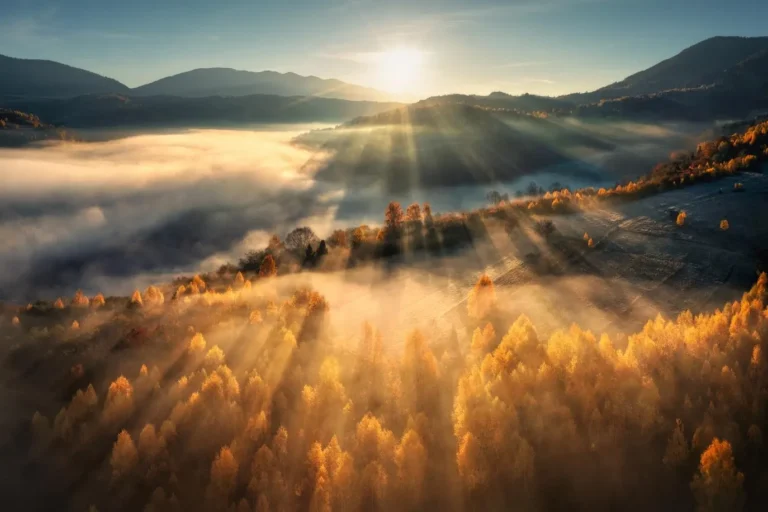
A breeze gently moved the light brown hair off the shoulder of an elegant woman, a Mediterranean beauty with big, almond-shaped eyes and a golden tan that seemed to be kissed by the sun as she radiated health and grace on the stone veranda that seemingly hovered over one of the most enchanting areas of the world, Lake Como in Northern Italy. The soft sunlight made the vibrant blue water glimmer as if the lake knew it was part of a rare pocket of the world that could bewitch anyone with its serene charm. This refined woman was staying at the Villa d’Este hotel, a classical Italian villa, and she envisioned all the tsars, marquises, sultans and princesses who stood where she was standing right at that moment. Even more importantly, she was one of the lucky few to attend one of the most prestigious European wine symposiums with some of the greatest wine producers attending the Villa d’Este Wine Symposium.
The week of the Villa d’Este Wine Symposium was filled with many tastings and seminars led by such fine wine leaders as Aubert de Villaine, co-owner of the iconic Burgundy estate Domaine de la Romanée-Conti, and Richard Geoffroy, the soon-to-be-retired legendary chef de cave of Dom Pérignon.
One of the exciting parts of the agenda that week was the Cabernet Sauvignon wine competition results, where only ten Cabernet wines were invited to be judged by 120 wine journalists and wine trade, and a Ukrainian Cabernet Sauvignon placed ahead of First Growth Bordeaux such as Château Haut-Brion and Château Margaux. The judges were comprised of a surreal selection of people including the likes of Aubert de Villaine, Richard Geoffroy and Vega-Sicilia owner Pablo Álvarez. The Ukrainian wine producer was SHABO and in the past 20 years, they have received more than 600 awards, many from top international wine competitions such as IWC (International Wine Challenge), and became the first Ukrainian producer to receive two gold medals from the prestigious Decanter World Wine Awards in 2021 and they have gone on to win more.
SHABO is not only worth the wine enthusiasts’ interest because they are wines from Ukraine, that make wonderful international variety wines like their Cabernet Sauvignon as well as thrilling native varieties such as their mineral-driven Telti-Kuruk white wine, but they are a must-try wine producer because of the great quality of their wines.
SHABO Winery
SHABO Winery is the oldest Ukrainian winery in the village of Shabo, and it is just under a two-hour car ride from the port city of Odesa, located on the western part of the Black Sea (with an estuary on the other side) in the south of Ukraine. CEO and co-founder of the modern age of SHABO, Giorgi Iukuridze, said that the area first had vineyards planted by ancient Greeks more than 2,500 years ago on the coast of the Black Sea. Then, Swiss colonists settled in the village of Shabo and started a movement toward quality vineyard plantings and management and higher-quality winemaking, and that was the very beginning of the SHABO legacy. However, during Soviet times, the wines were restricted to the Iron Curtain. Still, on a positive note, it was mainly used as research vineyards, helping to discern the best grape varieties to grow on the estate.
Yet there was a big turning point for this winery in 2003 when the Iukuridze family, a Georgian family, from the country of Georgia, who immigrated to Ukraine, bought the estate and proceeded to invest over 110 million euros from 2003 until 2019, significantly improving the vineyards, updating the winery as well as building two more wineries that are specific for their sparkling and brandy production as well as building a hospitality center that is on the same impressive level as top producers in Napa Valley. But what is remarkable is the idea of the humble beings of the Iukuridze family as Giorgi’s father, Vaja, was a Georgian winemaker before he decided to buy SHABO, and all the money they have invested as a family comes from loans and their only business is SHABO, hence all of their focus is devoted to their wines.
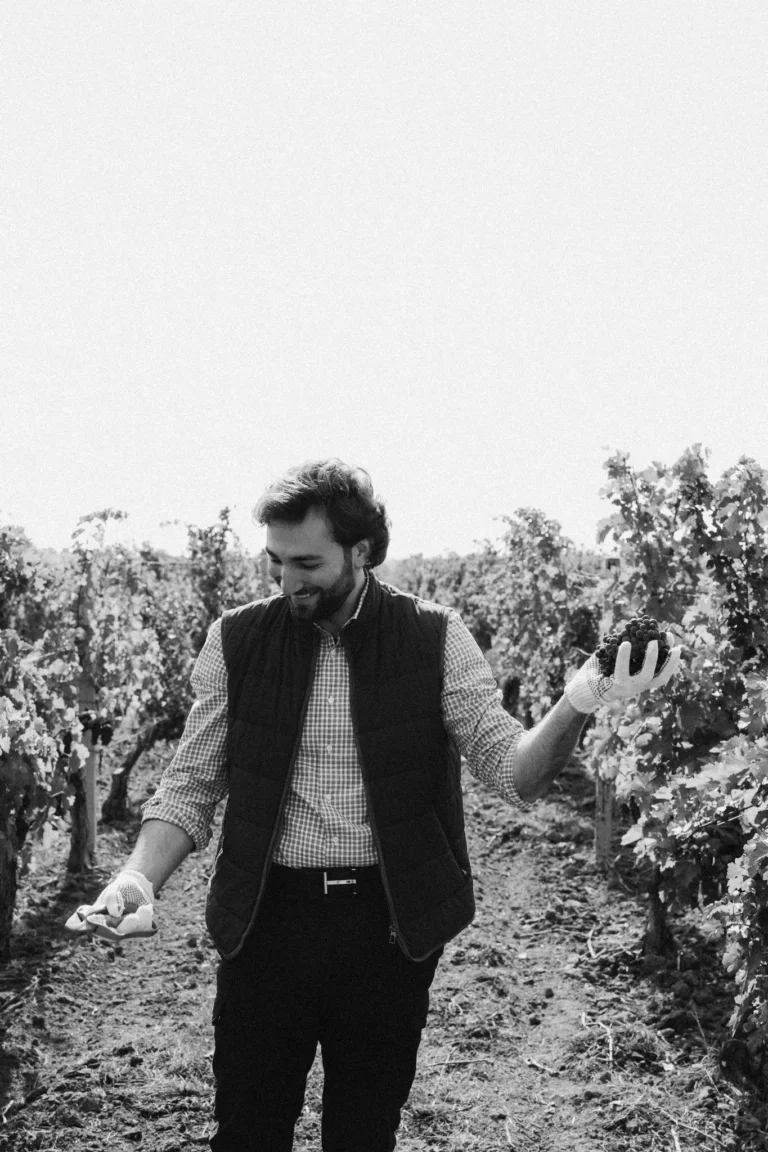
Giorgi spoke about the great lengths they go to to ensure that all bottles are consumed by their customers who want to age the bottles. They offer cellaring within their facilities, and they taste all the wines and vintages meant for aging every year so they can report to their customers whether they should hold or drink particular bottles.
The wonderful quality of their wines, made from various international and local grape varieties, has already started to greatly impress a few U.S. markets, such as Washington D.C. Recently, SHABO has become listed on a wine list at Imperfecto, a Michelin restaurant in Washington, D.C..
SHABO’s white Telti-Kuruk, with its mineral edge and ability to age, is a stunning example. The red Saperavi grape native to Georgia, sharing roots with the Iukuridze family, is blended with Merlot and spends time in qvevri (a traditional Georgian clay vessel used for fermenting and aging wine) and is a wine with the ideal balance of multidimensional aromas and texture yet still being delectably delicious; its biggest issue has been keeping it in stock. They have brought 30 qvevri from Georgia to use in some of their winemaking.
Giorgi Iukuridze’s father already has extensive Georgian winemaking experience, so he knows how to find the balance when making Qvevri wines. Yet they took a further step by bringing in the legendary French consultant Stéphane Derenoncourt to oversee their teams and guide them towards excellence.
U.S. Debut
Despite SHABO doing very well in Europe over many years, even garnering key placements at Michelin restaurants in London and Paris, as well as having their Cabernet Sauvignon featured at the famous wine museum, La Cité du Vin, in Bordeaux, France – the esteemed home of Cabernet Sauvignon, it took longer to get these wines into the U.S.. But that isn’t that surprising considering the over-saturation of the wine market in this country and the logistical nightmare of importing alcoholic products as each state functions like its own country.
But that all changed when Sam Lerman, an American military veteran, decided to volunteer as a wartime advisor by going to Ukraine in April 2022 on his own dime. Serendipitously, he wound up meeting a Ukrainian entrepreneur and eventually brought on a retired U.S. Marine who was also a career entrepreneur to import Ukrainian vodka and, to his initial shock, great Ukrainian wines, as Sam had no idea that they made wine, let alone ultra-premium level fine wine. That is how he connected with the Iukuridze family and established their U.S. import company, which focuses on Ukrainian products called Spyrt Worldwide.
Pleasure & Purpose
Spyrt Worldwide and SHABO are tied together by not only wanting to show the U.S. the amazing quality of wines made in Ukraine but also making real changes under desperate circumstances. Since a large part of Spyrt Worldwide’s mission is to help the Ukrainian people, they partnered with Invictus Global Response, which is made up of American veterans specializing in bomb removal. They go to liberated Ukrainian towns and clear landmines, and Sam notes that a significant amount of their profits go to this project.
SHABO’s main mission was to show Ukrainian excellence, but that mission has evolved to include saving lives as well, and they have been supplying bottled, clean water to towns that have been cut off from their water sources in Ukraine.
Not every day does one get to witness a true synergetic pair bring thrilling wines from a place that is on many minds yet is still unknowingly making great wines and, simultaneously, genuinely saving lives. Hopefully, one day, way in the future, the head of a Ukrainian family will open a special bottle of cellared SHABO wine with his grandchildren, who have just become young adults, to toast to their glorious country, Ukraine, toast to never taking freedom for granted and to toast to being one of the lucky ones who was able to survive so he could live to have children and grandchildren… and a big part of that luck was the lifesaving projects sponsored by those behind that SHABO wine.
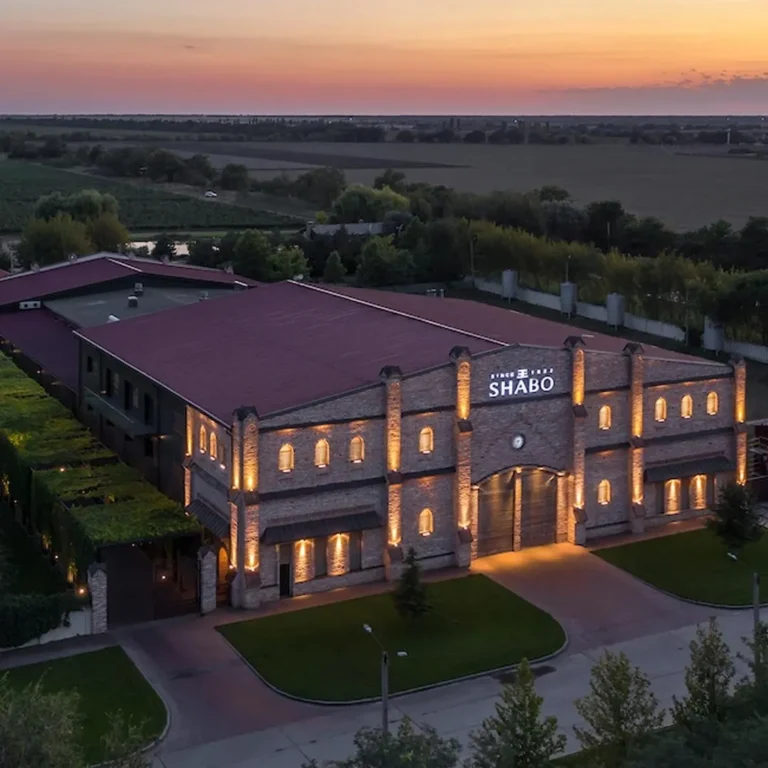
2016 SHABO, Grand Reserve, Blanc de Blancs Brut Sparkling Wine: 100% Chardonnay using the Champagne Method and aged eight years on the lees. Intense minerality with tantalizing notes of brioche and rich peach pie flavors on the palate with fresh acidity and a creamy texture formed by tiny, fine bubbles.
2023 SHABO, Telti-Kuruk Reserve White Wine: 100% Telti-Kuruk – a white native grape variety. A terroir-driven nose with wet river rocks, crushed limestone and wildflowers with lemon curd flavors and marked acidity that has a broad body balanced by lots of vitality.
2022 SHABO, Telti Kuruk Grande Reserve White Wine: 100% Telti-Kuruk that has been barrel fermented in French oak. Sea spray, lemon confit and a hint of spice with quince paste and mandarin oil on the palate with more texture to the wine than the Reserve, giving it a beautiful shape across the long finish.
2019 SHABO “Iukuridze Family Wine Heritage” Telti –Kuruk, Exclusive Release White Wine: 100% Telti-Kuruk. Giorgi Iukuridze noted that their top Telti-Kuruk will reach their peak of complexity in five to seven years and stay there for eight to ten years, yet in some cases, it can age a lot longer. And so, they have wines that they hold back for small batch releases once they have more age, such as this Telti-Kuruk “Iukuridze Family Wine Heritage” exclusive release. Multilayered aromas of honeycomb, seashell and hazelnuts with pear tart flavors and bright acidity with a very long finish of saline minerality.
2023 SHABO, Rosé Wine: 100% Pinot Noir. Freshly picked raspberries and strawberries with an uplifting aroma of lavender with a nice amount of weight yet still very minerally with mouthwatering acidity.
2022 SHABO, Qvevri Wine, Saperavi-Merlot, Limited Edition Red Blend: 40% Saperavi and 60% Merlot and spends six months in qvevri buried in the ground. Saperavi is a teinturier red wine grape, meaning it has red flesh as well as a red skin. Deep, brooding flavors are the first to reveal themselves with blackberry compote and black raspberry liqueur, which finds harmony with added layers of zingy tart cherry and orange peel that is grounded by smoldering cigar and graphite that is irresistibly juicy and flavorful while delivering so much complexity.
2023 SHABO, Cabernet-Merlot Grande Reserve Red Blend: 82% Cabernet Sauvignon and 18% Merlot. This wine is aged in 70% new French oak and 30% 2nd use barrel. Many times, when there is a new, exciting wine country in the U.S. marketplace, there is the feeling that they should only show their native grape varieties and stay away from the most popular international grape varieties as the market is saturated with them. However, once this wine is tasted, it becomes obvious why their Cabernet wines have won competitions and awards, as well as a place at the famous Bordeaux wine museum, La Cité du Vin. Enchanting black and red fruit starts to waft from the glass with notes of cassis and blackcurrants with tobacco leaf and licorice that has lively acids with an impressive density that has precision created by finely sculpted tannins with a long, expressive finish that is reminiscent of blooming jasmine during an evening stroll.
